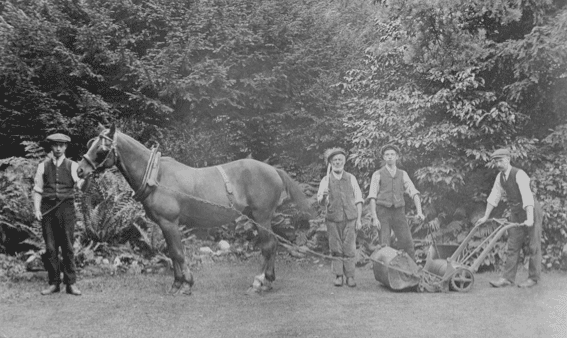
Image: Dorking Museum
In 1649 the Duke of Norfolk’s surveyor remarked on Dorking’s ‘pleasant hills and… salubrious air’. In 1652 the Duke’s son created a small estate at ‘Dibden’ (Deepdene). By the 1740s word had spread. Emmanuel Bowen’s map proclaimed the air of ‘Darking’ the sweetest in England.
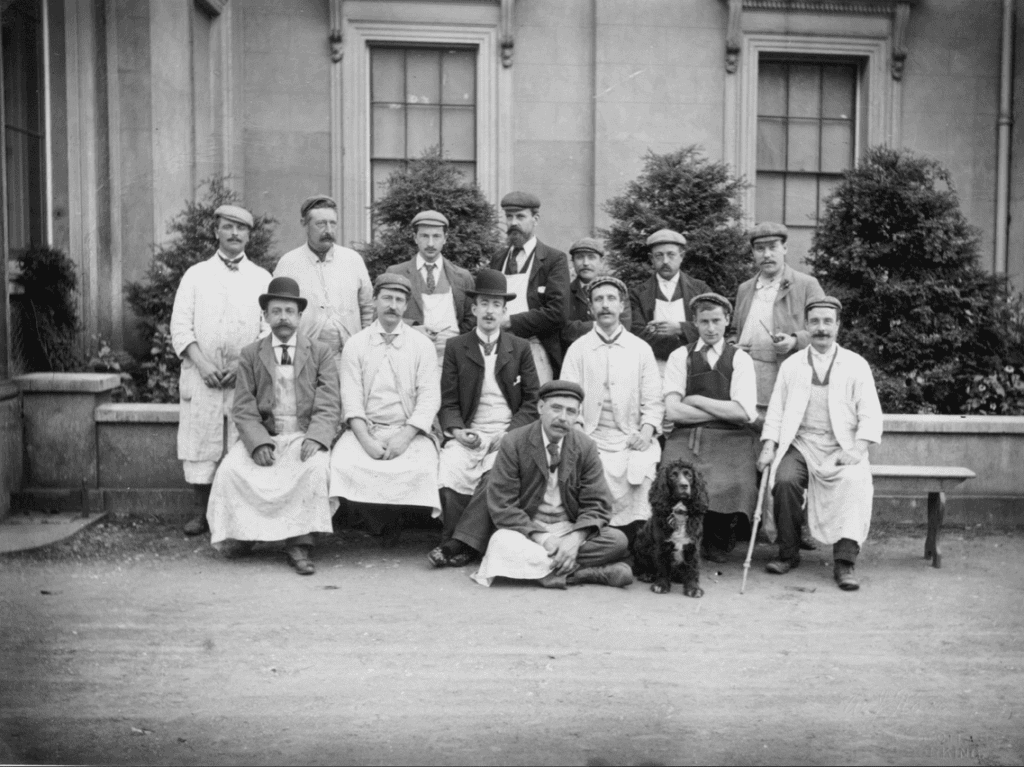
As travel grew swifter and more comfortable, the new wealthy of London built country residences within coaching distance of their business interests. Farms were incorporated into the estates of merchants and financiers who sought to ‘improve’ the landscape. Chart Park had hanging gardens, Bury Hill ornamental lakes, and the Deepdene an ornamental ruin. Elements of these naturalistic but artificial park landscapes can still be seen today.
Bury Hill
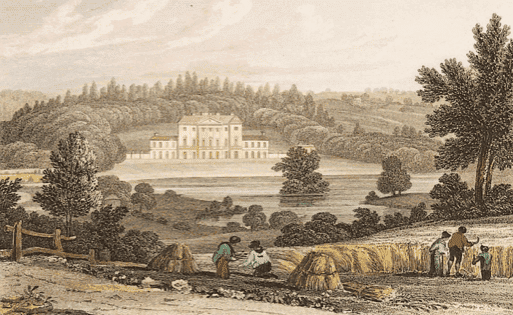
In 1735 Edward Walter bought up numerous farms to create the Bury Hill estate. From 1812 it was home to the Southwark brewing family, the Barclays. Its ornamental lakes survive as fishing lakes.
Norbury Park
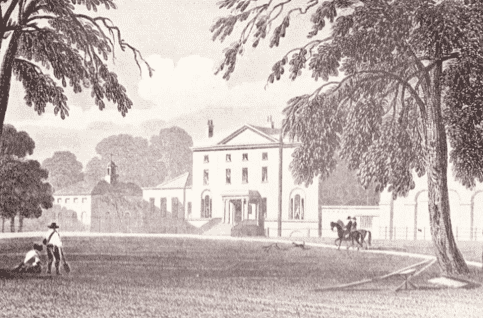
Norbury Park House was built in 1766 for the art critic William Locke. It was later home to Sir Leopold Salomons who gave Box Hill to the nation in 1914, and to the birth control pioneer, Marie Stopes.
Betchworth Castle
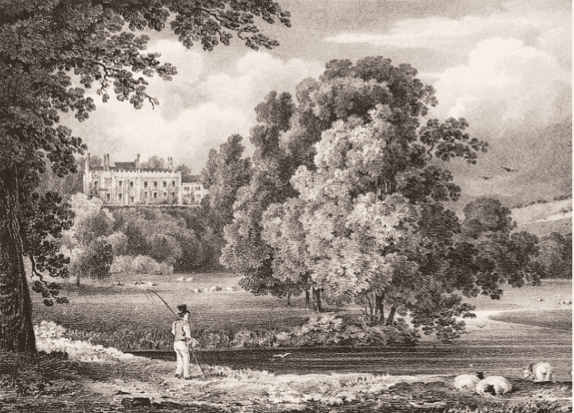
The fortified manor house of the manor of West Betchworth was traditionally home to the lords of that manor. It was bought in 1798 by banker, Henry Peters. It stretched from the zigzag at Box Hill to beyond Blackbrook and Sir John Soane designed additions to the house. Swallowed into the Deepdene estate, the castle now lies in ruins.
More details on Betchworth Castle can be found here.
Book a guided walk of Betchworth Castle here.
Denbies
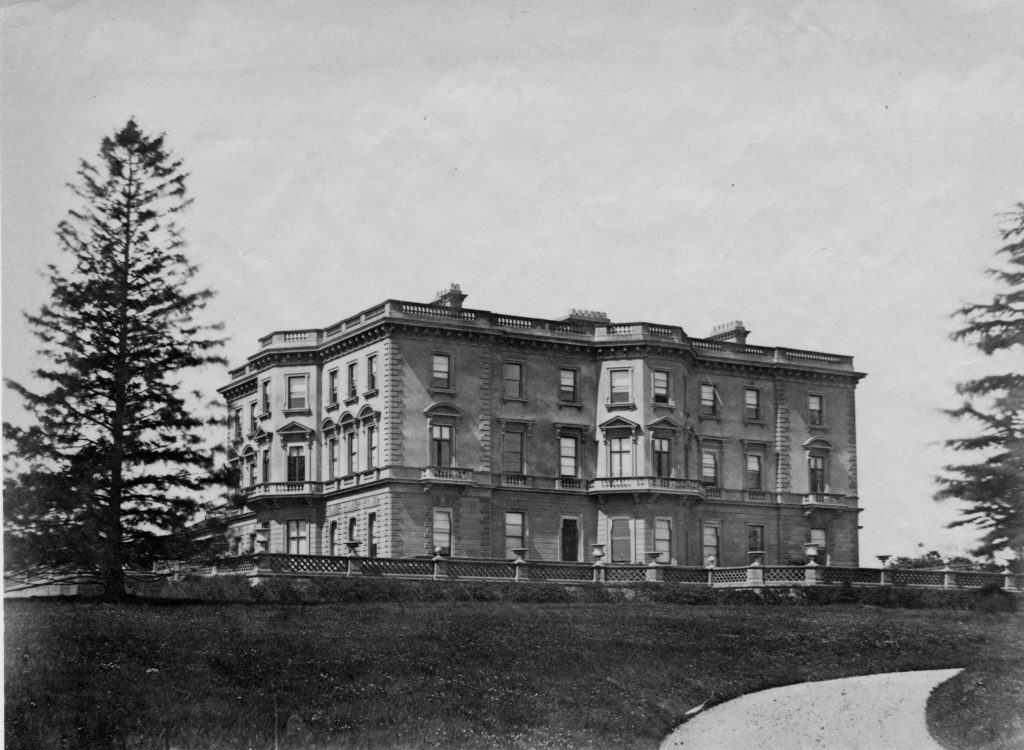
Jonathan Tyers, owner of the pleasure gardens in Vauxhall, bought Denbies farmhouse in 1734 and converted it into a landed estate. It was later rebuilt by Thomas Cubitt, the master builder and is now home to England’s largest vineyard.
More details on Denbies can be found here.
The Deepdene
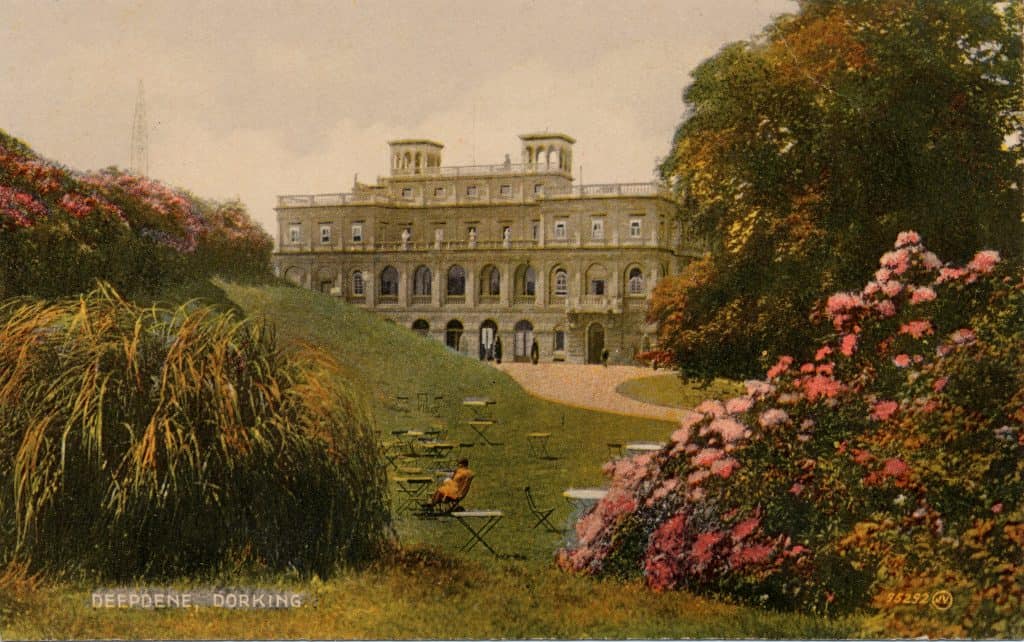
Established by the Howard family and home to two Dukes of Norfolk, the Deepdene was the grandest of Dorking’s estates and eventually Chart Park and Betchworth Castle became part of its lands.
More details on The Deepdene here.
Juniper Hall
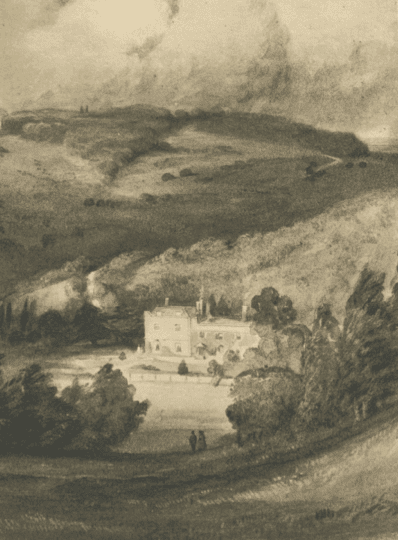
The 18th century house that was once home to wealthy French émigrés escaping the French Revolution is now a Field Studies Centre.
Burford Lodge
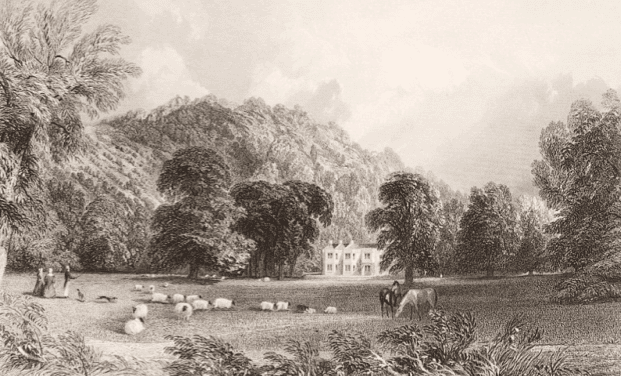
Burford Lodge, at the foot of Box Hill, was built in the 1770s and was later the home of the horticulturalist, Sir Trevor Lawrence.
Chart Park
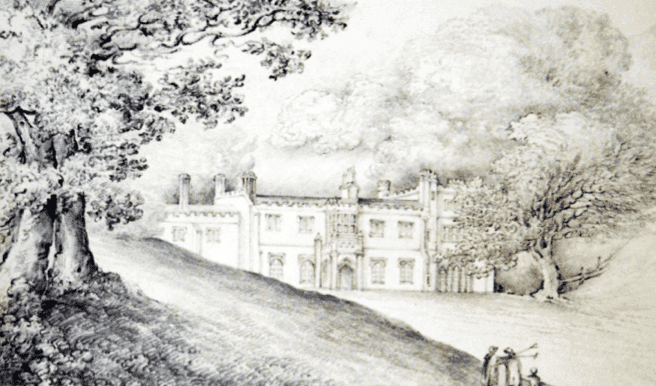
Henry Talbot founded Chart Park on the old Deepdene vineyard in 1746 with money made with the East India Company in China. The house was pulled down in 1814 and its park was incorporated into the neighbouring Deepdene estate.
More details on Chart Park here.
Milton Court
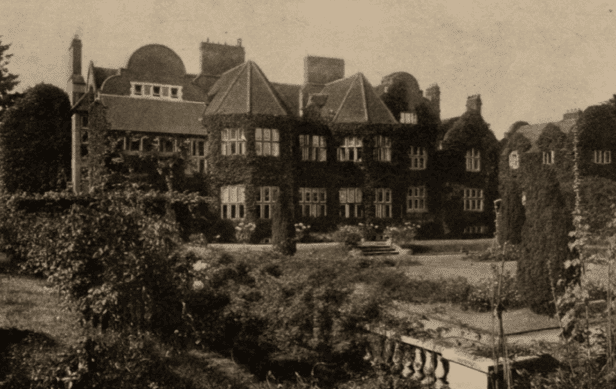
Milton Court started life as a dower house. It was rebuilt in 1611 by the Evelyn family. The house contains a splendid Jacobean staircase
By the end of the 19th century there were scores of smaller mansions surrounding Dorking, including Anstie Grange, home of Admiral Sir Leopold Heath, Broome Hall, home of Frederick Pennington MP, (both near Coldharbour), Abinger Hall, home of Lord Farrer, and Lyne House, near Capel, home of the Broadwood family of piano manufacturers.
Last : A Market Town
Next : ‘Bread or Blood’

